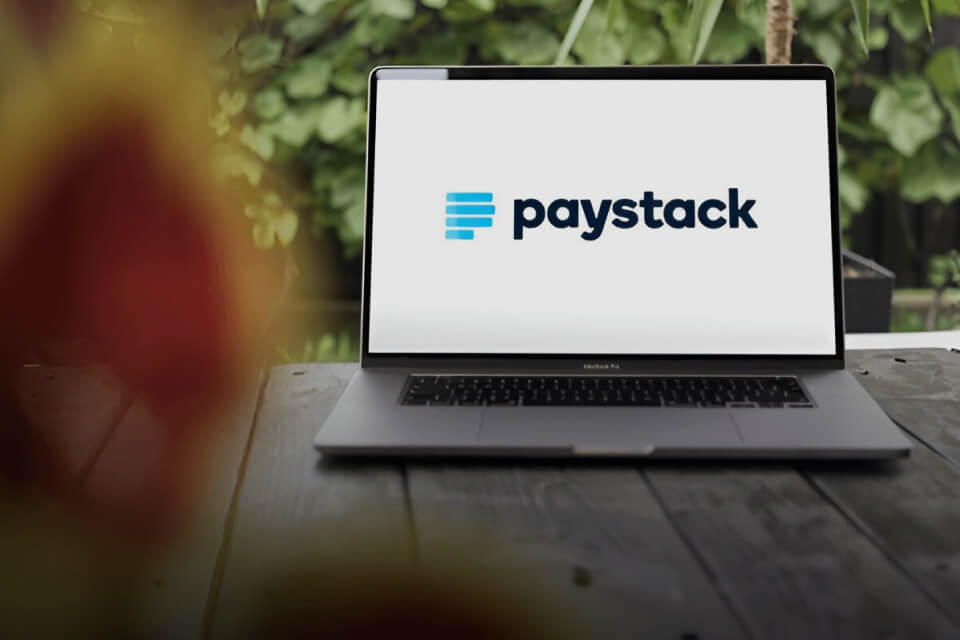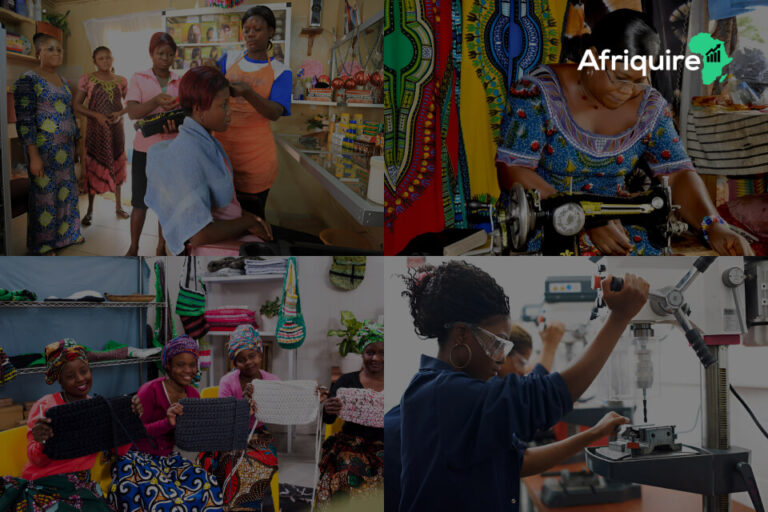- Introduction
- Business Incubators Support for Tech Startups in Africa
- The Role of Business Incubators in Accelerating Tech Startup Growth
- How Tech-Focused Incubators Provide Specialized Resources and Mentorship
- Case Studies of African Tech Startups Incubated to Success
- Addressing Common Challenges Faced by Tech Startups in Incubators
- The Future of Tech Incubation in Africa: Trends and Innovations
- Frequently Asked Questions (FAQs)
- Conclusion
Introduction
Africa’s tech startup scene is growing quickly. Many new businesses are starting, and they need help to grow strong and succeed. That’s where business incubators come in. These are special programs that give tech startups the tools, training, and support they need. They also help new businesses connect with investors and grow faster.
In this article, we’ll look at why business incubators support is so important for tech startups in Africa. We’ll also explain how they help improve success rates and build strong business communities.
Business Incubators Support for Tech Startups in Africa
Overview of the Tech Startup Landscape in Africa
To begin with, Africa’s tech world is getting bigger every year. Countries like Nigeria, Kenya, Egypt, and South Africa are leading the way. In just the first five months of 2025, tech startups in Africa raised over $1 billion. That’s a big deal, especially during hard times in the world economy. Right now, fintech (financial technology) is the top area, but green tech, health tech, and AI-based platforms are also growing fast.
Even though many places still have problems like poor electricity and slow internet, African startups keep moving forward. Also, more local investors and Africans living abroad are starting to invest. Because of this, startups don’t always have to depend on foreign money.
The Rise of Innovation Hubs and Entrepreneurial Ecosystems
At the same time, innovation hubs are rising all over Africa. These are places where entrepreneurs, mentors, investors, and government groups work together. Cities like Lagos, Nairobi, Cape Town, and Cairo now have many of these hubs.
They offer shared offices, internet, workshops, and investor access. More importantly, they help new businesses grow by building strong communities. Business incubators usually work inside these hubs. They support early-stage startups with the right advice, tools, and networks to keep going and growing.
Why Business Incubators are Crucial for Early-stage Startups
Starting a business is never easy, especially in Africa. Many entrepreneurs don’t have enough money, training, or market knowledge. That’s why incubators are so important. They provide affordable office space, business advice, training, and access to investors.
Even more, incubators teach startups how to turn small ideas into real products. They also prepare founders to speak to investors and raise money. Without this kind of support, many young businesses would struggle or fail in their early years.
The Link between Incubation and Startup Survival Rates
Studies show that startups in incubation programs survive more than those that are on their own. That’s because incubators give them time and space to grow without pressure. They also help with planning, money management, and marketing.
In addition, incubators make it easier to meet investors and raise funds. This support is very important, especially since venture capital in Africa is still growing. Not only that, but incubators also help startups reach rural and underserved areas. So, they play a big role in both startup success and rural development.

The Role of Business Incubators in Accelerating Tech Startup Growth
Business incubators are very important, especially in Africa, where starting a business can be tough. They give startups a place to work, useful training, chances to meet important people, and help to improve their products. Let’s look at how business incubators help young tech businesses grow stronger and faster.
Providing access to Co-working Spaces, Equipment, and Internet
First, business incubators offer co-working spaces. This means startups don’t need to rent their own offices, which can cost a lot of money. Instead, they can work in a shared space with other small businesses.
These incubators also give access to tools like computers, printers, and strong internet—things that are often hard or expensive to get in many places. Because of this, young businesses can save money and focus more on building their ideas.
Offering Training, Workshops, and Business Development Support
Next, incubators help founders learn new skills. They run workshops and training sessions where entrepreneurs learn about how to manage money, plan a business, market products, and speak to investors. For many first-time business owners, this kind of support is very helpful.
Even more, some incubators offer one-on-one help from expert mentors. These mentors guide startups step-by-step and help them make better choices. With this kind of advice, many young businesses avoid mistakes and grow faster.
Facilitating Networking with Investors, Partners, and Experts
Another way incubators help is through networking. They create events where startups can meet investors, business partners, and other experts. These meetings—like pitch days and demo events—allow startups to share their ideas and get funding.
Also, meeting new people can lead to great partnerships. This is especially helpful in Africa, where startups often struggle to find investors. Because of this, incubators become a bridge that connects young businesses to bigger markets and more support.
Helping Startups Refine Products and Validate Markets
Also, business incubators help startups make better products. They teach founders how to test their ideas with real customers and use the feedback to improve. This helps avoid failure and makes sure the product solves real problems.
In addition, incubators help startups build business models that can last and grow over time. When startups know their product fits the market, they are more likely to succeed and attract investors.
How Tech-Focused Incubators Provide Specialized Resources and Mentorship
Tech-focused business incubators play a very important role in helping new startups grow. With the right help, startups can grow faster and avoid common mistakes. This kind of support is especially helpful in Africa’s busy and competitive markets.
Customized Mentorship from Industry Professionals
First of all, tech incubators connect startups with experienced mentors. These are people who have worked in tech and business for many years. They understand the challenges that startups face and know how to help.
Mentors guide founders in areas like product design, marketing, and raising money. Even better, the advice is usually tailored to what each startup needs.
For example, programs like MEST Africa and Enspire give founders access to mentors who walk with them step by step. This kind of personal support helps founders avoid big mistakes and build stronger businesses.
Access to Software Tools, APIs, Cloud Credits, and Testing Labs
Next, tech incubators also give startups access to important tools. These include software, APIs (which help apps work together), cloud storage credits, and testing labs. These tools are often very expensive, but incubators provide them for free or at a much lower cost.
For example, Google for Startups Accelerator gives startups cloud credits and technical help. With these tools, startups can build and test their ideas properly.
This makes their products better and more likely to attract investors. It’s one of the many ways incubators help African startups grow and succeed.
Support in Areas like UX Design, Product Development, and Scaling
In addition, incubators help startups improve in key areas. These include user experience (UX) design, product building, and preparing for growth. Startups get support to build simple versions of their product, test it with users, and then improve it. They also learn how to plan for bigger markets.
For example, Enspire’s programs help founders turn small ideas into real products. This support makes sure startups create things people actually want and use. And when startups build strong products, they can grow faster and make more impact.
Collaboration with Universities and Research Institutions
Also, many tech incubators work with universities and research centres. This means startups can learn from top scientists, researchers, and students. These partnerships help bring in new ideas, research findings, and fresh talent.
With this kind of access, startups can use the latest science and technology to build smart solutions. Some of these solutions are even used to solve problems in rural areas. So, incubators also play a big role in improving life for people outside big cities.

Case Studies of African Tech Startups Incubated to Success
Business incubators help startups grow by giving them advice, money, and the tools they need to succeed. In Africa, many tech startups have grown from small ideas into big companies because of this support. Below are some exciting examples that show how incubators support African startups and help them reach success.
Flutterwave: Scaling Payment Solutions Through Mentorship and Funding
Flutterwave began in 2016 with one big goal: to help African businesses accept payments from anywhere in the world. The founders, Iyinoluwa Aboyeji and Olugbenga Agboola, joined incubator and accelerator programmes that offered advice and early funding. Because of this support, they were able to build their payment platform and meet investors.
As a result, Flutterwave has grown into a tech giant, now worth over $3 billion. It operates in 35 countries and handles millions of transactions. Incubators played a key role in helping Flutterwave grow quickly and successfully.
Andela: Nurturing Developer Talent through Structured Incubation
Andela started with a bold idea: train software developers in Africa and link them to top tech companies around the world.
With the help of business incubators, Andela received funding, expert guidance, and access to the right people. This allowed the company to build strong training programmes and grow fast. Big investors, like Mark Zuckerberg’s foundation, also noticed and joined in.
Today, Andela is worth over $1.5 billion and works across Africa and the United States. This shows how the right support can help grow talent and build powerful companies.
Paystack: Gaining Market Traction through Strategic Incubator Backing
Paystack is another great example of how incubators can make a big difference. This Nigerian fintech company got early help through incubator programmes. They received funding, advice, and help with their business plans. Because of this, Paystack improved its services and reached more customers.
Then, in 2020, something huge happened! Stripe, a global payment company, bought Paystack for over $200 million! It became one of the biggest tech deals in Africa. This proves that strong support from incubators can help startups reach amazing goals.
mPharma: Using Incubator Support to Expand across African Markets
mPharma is a health-tech startup working to make medicine easier to get in Africa. With help from business incubators, mPharma got funding and expert advice. This allowed them to partner with hospitals and pharmacies in many countries. As they grew, they helped lower the cost of medicine and improve healthcare for many people.
This success shows how incubators can support startups that make life better—especially in rural areas.
In the end, these stories show just how powerful business incubators can be. They help startups like Flutterwave, Andela, Paystack, and mPharma grow by offering mentorship, money, and important connections. These companies are not just winning, but also they’re changing lives across Africa.
Addressing Common Challenges Faced by Tech Startups in Incubators
Tech startups in Africa have big dreams, but they also face big challenges, even as parts of business incubators. These incubators offer help like funding, office space, and mentorship. However, there are still many issues that hold startups back. Knowing these challenges is important if we want to improve how business incubators support African startup success, especially in rural areas.
Limited Access to Follow-on Funding and Investment Opportunities
One of the biggest problems tech startups face is finding more money after their early support runs out. Most incubators give small funds at the beginning, but many startups need much more to grow.
Sadly, getting that extra funding is not easy. In fact, startup funding in Africa has dropped by about 32% recently. This makes it harder for startups to raise the money they need.
As a result, many great ideas can’t move forward and may even shut down. So, without enough funding, even promising startups might not reach their goals.
Gaps in Technical Infrastructure and Unreliable Power Supply
Another big challenge is weak infrastructure. Many startups rely on good internet and constant electricity to build and test their tech products. But in many parts of Africa, the internet is slow or not available at all.
Power cuts are also very common. This makes it difficult for startups to run their daily activities. Even with incubator support, these issues stop them from doing their best. Startups in rural areas suffer the most. So, until we fix these problems, the full impact of business incubators on rural development will not be seen.
Shortage of Experienced Local Mentors in Specialized Tech Fields
Mentors are very helpful, especially when they understand the startup’s industry. But many incubators in Africa struggle to find mentors who have deep knowledge in specialised tech fields like AI, blockchain, or robotics.
While some incubators work with international mentors, local mentors with real, hands-on experience are few. Because of this, startups may miss out on good advice or make costly mistakes. For startups to grow, we must build strong networks of local mentors who truly understand the tech space.
Difficulty in Transitioning from Incubation to Independent Operations
Lastly, many startups find it hard to leave the comfort of the incubator. While they are there, they get support, tools, and guidance. But once the program ends, they are expected to run the business on their own. This shift can be tough. Startups now have to manage money, grow their team, and compete in a larger market.
Without enough support after leaving the incubator, many of them struggle to survive. That’s why incubators need better exit plans and continued support to help these businesses succeed on their own.

The Future of Tech Incubation in Africa: Trends and Innovations
Tech incubation is helping African startups grow faster and stronger. Business incubators give young companies what they need—like training, advice, and funding—to succeed. But things are changing. New ideas and tools are now shaping how incubation works across Africa. Let’s explore the exciting trends driving the future of tech incubation on the continent.
Growth of Virtual Incubators and Hybrid Incubation Models
First of all, many incubators are now going online. These are called virtual incubators. They help startups get support from anywhere using the internet. This means even people in small towns or rural areas can now get expert help.
Also, there are hybrid incubators. These combine both online and in-person support. So, you can join workshops online and still meet mentors face-to-face when needed. Because of this, more entrepreneurs—especially those in remote places—can now join and benefit from incubation programmes. That’s a big win for startup growth in Africa.
Adoption of AI and Data Analytics for Startup Monitoring and Support
Next, many incubators are now using technology like artificial intelligence (AI) and data analytics. These tools help incubators track how startups are doing, spot problems early, and give better advice.
For example, if a startup is not making enough sales, AI can help find out why. Then, mentors can step in and give clear steps on what to fix. This smart support helps startups improve faster. It also makes business incubators more helpful and effective for new businesses.
Government Involvement and Policy Support for Incubation Programs
Another big change is that many African governments are now supporting tech incubators. They know that startups help the economy grow. So, they’re giving incubators more money, setting up helpful policies, and building good infrastructure.
For example, in Rwanda, the government helped create Kigali Innovation City, which includes tech hubs and incubator spaces. When governments get involved, it becomes easier for both incubators and startups to succeed.
Emergence of Sector-specific Incubators
Also, more incubators are now focusing on one type of industry. These are called sector-specific incubators. They help startups in areas like health (health-tech), agriculture (agri-tech), fintech, and clean energy.
Because they focus on just one field, they can give very useful support. For example, agri-tech incubators help startups build tools for farmers. These tools can help increase food production and improve rural life. When incubators focus on one area, they can help startups grow faster and solve real problems.
Basically, tech incubation in Africa is changing for the better. Thanks to virtual and hybrid models, AI tools, strong government support, and industry-focused programmes, more startups are getting the help they need.
Frequently Asked Questions (FAQs)
1. What does business incubator support mean?
Business incubator support means giving new businesses the help they need to grow. This includes things like training, advice from experts, office space, and even help finding money.
2. How do tech startups in Africa benefit from incubators?
They get expert advice, learn important business skills, meet investors, and have a better chance of growing and staying strong in the long run.
3. Are business incubators only for new startups?
Mostly, yes. But some incubators also help businesses that are already growing and want to get even bigger.
4. Can rural startups get help from business incubators?
Yes! Thanks to online programs, many incubators now help rural startups through the internet. So you don’t always have to be in a big city.
5. Is it free to join a business incubator?
Not always. Some are free, but others may charge a fee or take a small share of your business in return for their help.
Conclusion
Business incubator support is changing the game for tech startups in Africa. Not only do they offer advice and training, but they also help businesses find funding and reach bigger markets. Plus, many now offer support online, which means more people—even in rural areas—can benefit. As tech keeps growing across Africa, incubators will be even more important. So, whether you’re dreaming big from Nairobi or building something new in a small town, the right incubator could help you take your startup to the next level.



